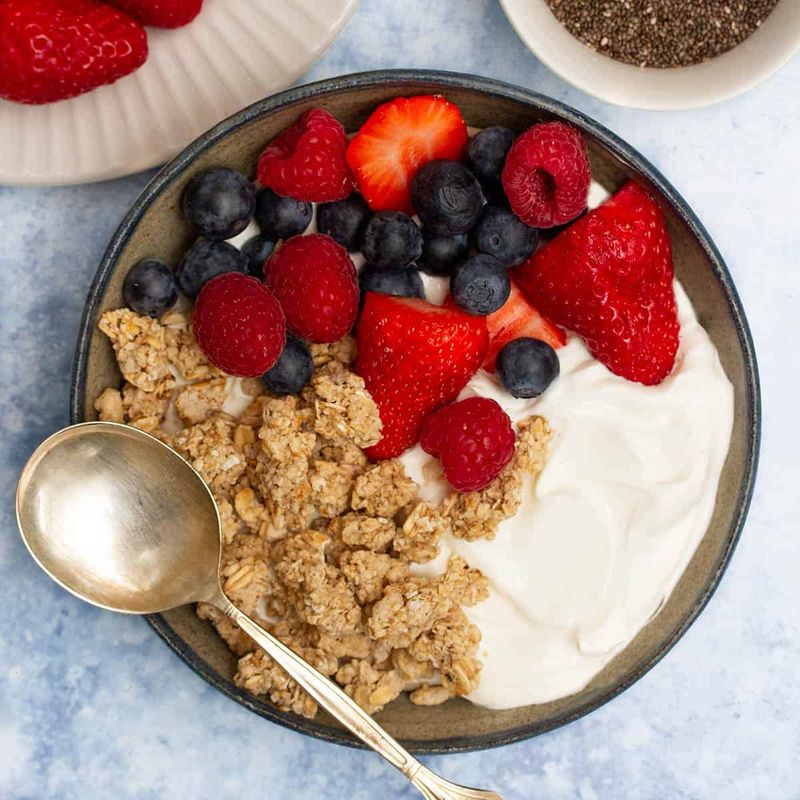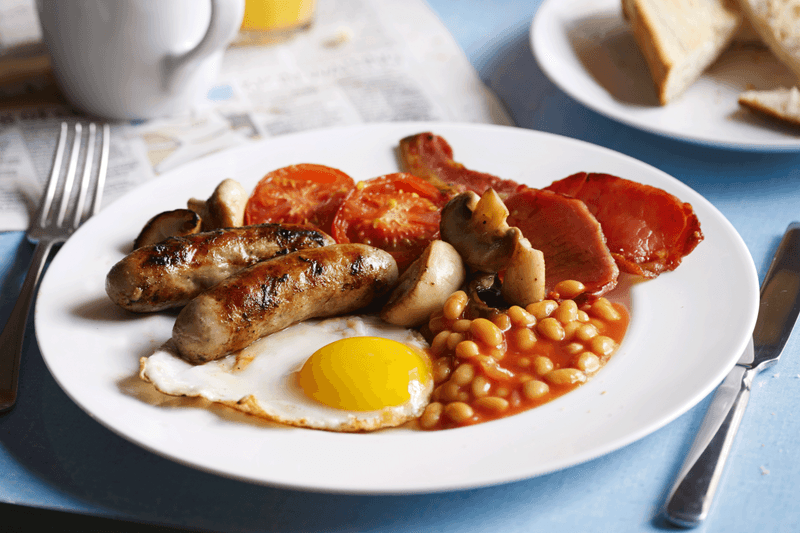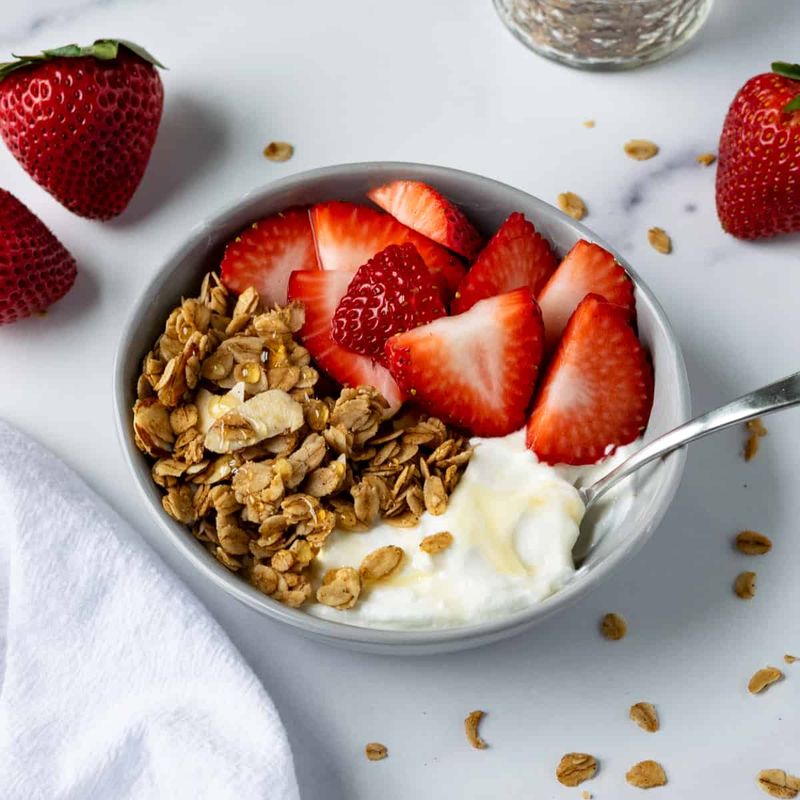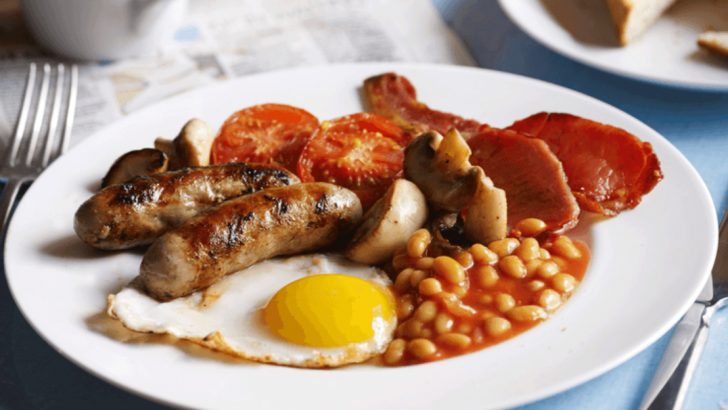When you think of a Full English breakfast, the words ‘greasy’ and ‘indulgent’ might pop into your head. But hold on to your toast! This quintessentially British meal may have some surprising health benefits over that seemingly innocent bowl of yogurt and granola.
Here’s a hearty dive into seven unexpected reasons why the Full English might just trump your granola game. Ready to swap your spoon for a fork? Let’s sizzle!
1. Protein Powerhouse

A Full English breakfast is packed with protein, especially from eggs and meat. Protein is essential for muscle repair and growth, making it an excellent choice for anyone with an active lifestyle or those trying to maintain muscle mass.
While yogurt does provide some protein, especially Greek yogurt, the protein content in a Full English is typically higher due to the eggs, sausages, and bacon. This makes it a great breakfast option for those looking to start the day with a protein boost that fuels them for hours.
2. Well-Rounded Mix Of Macronutrients

One of the standout benefits of a Full English breakfast is its ability to offer a balanced combination of macronutrients: protein, healthy fats, and carbohydrates. The eggs and meat provide healthy fats and protein, while the toast and baked beans offer carbohydrates.
This well-rounded mix keeps you full longer and provides sustained energy throughout the day. On the other hand, yogurt and granola tend to be low in fats and might lack sufficient protein unless you add nuts or seeds, making the Full English a more satisfying and complete meal for many.
3. Essential Vitamins And Minerals

A Full English breakfast is full of important vitamins and minerals, especially when you include vegetables like tomatoes, mushrooms, and spinach. These foods are rich in vitamin C, vitamin A, and antioxidants, which support your immune system, skin health, and reduce inflammation.
The meat in the Full English also provides a good source of iron and zinc—essential nutrients for energy and immune function. In comparison, yogurt and granola can be low in these vital nutrients, especially when fruits or other nutrient-dense toppings aren’t added.
4. Provides Sustained Energy

Due to its protein and fat content, a Full English breakfast offers long-lasting energy, making it a great choice for those with busy mornings or demanding physical activities ahead. The slow-digesting proteins and fats help keep blood sugar levels stable, reducing the likelihood of an energy crash mid-morning.
While yogurt and granola can be energizing initially, the sugar content in granola can cause a spike and subsequent drop in blood sugar, leaving you feeling hungry again sooner. A Full English breakfast, in contrast, helps maintain energy levels for longer periods.
5. Supports Heart Health

Despite the common misconception, not all fats are bad. A Full English breakfast can support heart health when prepared thoughtfully with healthier fats. For example, using olive oil for cooking, opting for lean meats, and incorporating avocado or a handful of nuts can provide healthy unsaturated fats that support cardiovascular health.
The protein-rich eggs also contain omega-3s when sourced from pasture-raised chickens. While yogurt and granola can offer some fats, especially when using full-fat yogurt, they often don’t provide the same balance of heart-healthy fats found in the variety of ingredients in a Full English breakfast.
6. Perfect for Those Who Need A Filling Meal

If you’re someone who struggles with hunger pangs or doesn’t have time for a mid-morning snack, a Full English breakfast is a more substantial and satisfying option. The combination of protein, fats, and fiber from beans and vegetables makes this meal hearty, keeping you fuller for longer.
Granola can be delicious, but it’s often lighter in terms of volume and can leave you feeling hungry shortly after eating. For those who prefer a more substantial, nutrient-dense breakfast that can keep them full until lunch, the Full English is a great option.
7. Customizable To Fit A Balanced Diet

The beauty of the Full English breakfast lies in its versatility. You can easily modify it to fit a more health-conscious approach by opting for grilled instead of fried items, leaner cuts of meat, and adding more vegetables for extra fiber and nutrients. For instance, swapping sausages for turkey bacon or adding spinach and grilled tomatoes can boost the fiber and vitamin content.
You can also use whole-grain toast for added fiber. This level of customization makes the Full English breakfast easier to adapt to different dietary needs, making it an increasingly healthy choice compared to a one-size-fits-all bowl of yogurt and granola.

